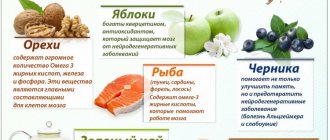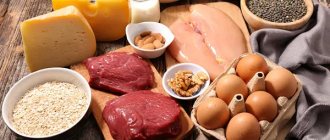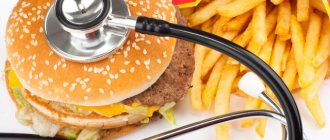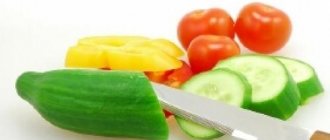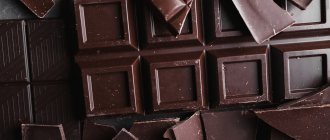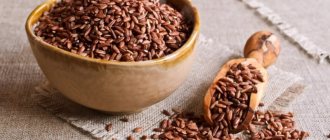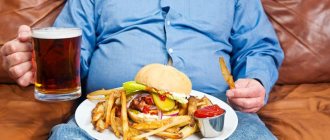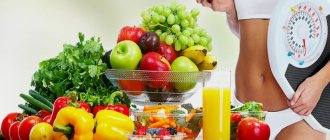Carbohydrates
Carbohydrates are one of the main sources of energy. The substances allow you to quickly obtain glucose - the sugar needed for sports, especially at high intensity, sudden movements and working with heavy weights. The storage form of glucose, glycogen, is found primarily in the muscles for quick use. After completing the exercise, energy reserves are depleted, and the body begins to absorb carbohydrates at twice the rate.
Along with glucose, muscles consume water and nutrients, which help replenish lost reserves. You can think of it as a sponge ready to absorb micronutrients.
Glycogen
Decreased endurance is observed with a lack of glycogen. These are operational energy reserves in the muscles and liver.
If it is not enough, the muscles do not have time to recover, weakness, lethargy appear, and performance decreases.
At distances longer than 30 minutes, the main cause of fatigue is depletion of glycogen stores and dehydration.
To cope with the lack of glycogen, you need to follow a high-carbohydrate diet. Experts recommend eating 10 grams of carbohydrates per 1 kg of weight .
Athletes carry out carbohydrate loading before competitions, but if you do not participate in competitions, it is of no use.
Squirrels
Protein intake is key to maintaining and building muscle mass. The substance may become even more important after exercise, especially strength training.
During training, muscle fibers are injured and protein in the body is destroyed. To correct the damage, you need to include a quality source of amino acids in your diet. In fact, adding protein is a way to build muscle. The process of protein synthesis is responsible for this. New tissues replace those that “failed” after microtrauma.
If you do not provide a sufficient amount of amino acids in the menu, then loss of muscle mass and loss of tone may occur, which will negatively affect physical fitness.
Post-workout recovery protein foods are thought to help repair damaged muscles. This leads to a potential increase in strength, endurance, and overall muscle mass.
Foods you should not eat before endoprosthetics
Some foods enhance the inflammatory response, so it is recommended to exclude them from the diet at the preparatory stage as early as possible. These include:
- products containing refined sugar (sweets);
- fatty meats and other products containing saturated fatty acids;
- ready-made cookies and cakes (they contain dangerous trans fatty acids);
- alcohol.
If you want the artificial joint to take root, do not eat cakes and pastries.
Fats
Although fat is burned during exercise and becomes a source of energy 40 minutes after the start, it does not need to be replenished after the gym. Mainly because the body has abundant reserves, and it is very unlikely that the “pantries” will be depleted after one session.
Rapid absorption of nutrients leads to better recovery, and fat slows down the absorption of certain substances, such as carbohydrates. Therefore, it is recommended to choose foods low in fat.
But some scientists question this advice, suggesting that consuming fat does not have a negative impact on recovery. In addition, the substances have anti-inflammatory properties, which may help reduce swelling after exercise.
There is no need to completely give up foods containing fat. Rational limits must be set.
How does food affect performance?
Properly balanced nutrition allows you to extract maximum energy from food. At the same time, it is important to provide the body with a sufficient amount of vitamins, minerals, and other nutrients , despite the fact that energy is taken mainly from carbohydrates and fats.
Only with a normal balance of beneficial microelements will the digestive system be able to fully absorb the same proteins, glucose, and fat. Otherwise, it will lead to excess weight. Thus, the body postpones “for later” what it cannot absorb now.
Why do some foods negatively affect performance? Because too much energy is spent on digesting them . These are complex proteins, animal fats, and some complex carbohydrates. The body undoubtedly needs them, but not in the quantities in which modern man consumes them. The same fast food, for example, is very nutritious and satisfying, but at the same time it contains an excessive amount of complex animal fats, but there are no vitamins or fiber at all.
It is also necessary to take into account that performance depends not only on physical, but also psychological health. “Mental productivity” also directly depends on diet.
Meal time
There is a lot of debate about whether there is a time limit for post-workout recovery nutrition to have the greatest effect. Many people may have heard the term “anabolic window”. What is this?
Muscles need fuel after the gym, and blood flow increases. When physical activity is completed, the body must replenish costs within 60 minutes. This hour is called the anabolic window.
In fact, there is no conclusive research showing exactly when to eat. Amateurs don’t care much about this, but professionals traditionally strive to eat within an hour after finishing a workout.
What if the theory is true? Then it is better to really choose an interval for eating at 20-60 minutes after completing classes.
Tomatoes
There should be an exclamation point next to this product! Tomatoes are good because they have a pleasant taste and are low in calories (27 calories in a glass of cherry tomatoes). They are rich in vitamins A and C, antioxidants, beta-carotene and lycopene, and also contain vitamin B6.
What the Science Says: Korean scientists set out in 2008 to find out how vitamin B6 in the diet affects muscle glycogen storage before, during and after exercise. They did not find experimental dogs, but they took on trained laboratory rats. The latter trained for 4 weeks on a treadmill for half an hour every day. As a result, those rodents that were deficient in B6 had insufficient levels of muscle glycogen recovery after exercise. What about the human body? Let's take another example. In 2013, Greek researchers formed a group of athletes to test their endurance. Some were asked to replace their usual sports drinks with tomato juice. Scientists later reported that those who drank tomato juice had decreased biomarkers indicating muscle fatigue. Naturally, we are pleased with this conclusion. We're sure you will too.
Training plans for marathon and half marathon. and start preparing today.
Best Products
There is a wide range of nutritious foods that can meet your needs. Let's talk about the best options.
Simple and complex carbohydrates
Carbohydrates can be found almost everywhere. But not all of them are equally useful. The main sources of energy are found in sugary foods and everything that grows from the earth, including fruits, vegetables and grains.
All carbohydrates help fuel you, but some work faster than others. Simple ones, such as those found in white rice and sugar, are able to deliver glucose to the muscles at maximum speed. Complex ones provide more “time-stretched” energy.
Some of the best carbohydrate foods include:
- White rice.
- Potato.
- Pasta.
- Bread.
- Chocolate milk.
- Fruits.
- Oats.
Low Fat Proteins
The best foods for quick post-workout recovery are proteins. They contain all the essential AMK - amino acids. Proteins typically come from meat and fish, as well as some plants such as soy.
Dairy products may offer unique benefits due to their high levels of complete protein, simple carbohydrates, and hormones that have a positive effect on muscle gain.
There are proteins with the following types of release:
- Slow.
- Fast.
The former, such as casein, supply small amounts of amino acids for a longer period of time after consumption. The latter, for example, whey protein, are absorbed and begin to act instantly.
Scientists believe that taking both types of protein is most preferable. Fortunately, most foods contain both fast and slow proteins at the same time.
Here are some of the best complete protein options to consider:
- Chicken.
- Turkey.
- Shrimps.
- Fish.
- Beef.
- Cottage cheese.
- Greek yogurt.
- Eggs.
- Cheese.
Unsaturated fats
Healthy fats, especially omega-3s, act as powerful anti-inflammatory agents. They have a beneficial effect on the heart. Some studies show that it is for this reason that substances can improve performance.
Post-workout recovery foods that contain fat:
- Salmon.
- Avocado.
- Flax-seed.
- Chia seeds.
- Nuts and nut butter.
Foods with high nutritional value
Micronutrients, known as vitamins and minerals, can help support recovery. Foods high in antioxidants, such as vitamins E and C, are especially beneficial. Foods with potassium and magnesium are a good help for the body. And zinc is indispensable for accelerating muscle synthesis.
The easiest way to make sure your body is getting enough micronutrients is to include fruits and vegetables in your diet every day. Here are some great nutrient-rich food options:
- Greens with dark leaves.
- Carrot.
- Broccoli.
- Mussels.
- Berries.
- Bitter chocolate.
- Beans.
Products for increasing endurance
- Beets are rich in iodine, copper, zinc, manganese, sodium, calcium, and fluorine. It promotes the production of creatine, an acid that is necessary for normal muscle function and their energy exchange with nerve cells.
- Raisins and other dried fruits help saturate the blood with oxygen and improve cell nutrition.
- Tomato juice contains lycopene, the strongest antioxidant.
- Lingonberries and cranberries increase the pain threshold and saturate the body with vitamins and antioxidants.
- Ginger helps relieve muscle pain and tension.
- Bananas strengthen the cardiovascular system.
- Seafood contains iodine, which improves tone.
Diet example
Here are some simple nutritional examples to speed up muscle recovery after an intense workout. They can be used to get the right combination of carbohydrates, proteins, healthy fats:
- Greek yogurt with fresh fruit and honey.
- Cottage cheese with banana.
- Scrambled eggs and toast.
- Mashed potatoes and chicken.
- Marinated shrimp with rice.
- Assorted cereals with salmon.
- Boiled chicken fillet with herbs.
What vitamins are needed for bones?
Of the many vitamins needed to maintain bone strength, we've chosen two of the most important: D3 and K2.
Vitamin D3
D3 is perhaps the most famous bone-strengthening vitamin. It is known that vitamin D3 controls about 200 molecular genetic reactions, and its presence is an indispensable condition for the absorption of calcium in the intestine and the maintenance of phosphorus-calcium metabolism. With a lack of vitamin D, as with magnesium deficiency, bones lose their strength and osteoporosis develops.
Vitamin K2
Today, taking nutraceuticals with vitamin K2 is an absolute trend in a healthy lifestyle.
Its role in maintaining bone health is enormous. Vitamin K2 is often called a calcium activator because, as an experienced regulator, it directs this mineral directly into bone tissue and prevents its deposition in internal organs, blood vessels and soft tissues. Natural vitamin K2 is obtained from the superfood natto. These are fermented soybeans, fermented using a special technology in the presence of the microorganism Bacillus subtilis. A real treasury in which caring Nature stores the most important minerals and vitamins for bone fractures and for strengthening them is mumiyo. This valuable mountain balm helps maintain phosphorus-calcium metabolism and is a powerful stimulator of bone tissue restoration in case of injury.
Omega-3, 980 mg, 30 capsules, Nature's Bounty
1 763 ₽
Dietary supplement NOT A MEDICINE
Goals
Athletes have 3 main goals:
- Fat loss.
- Muscle building.
- Increased endurance.
Let's talk about how products for quick muscle recovery after a workout help you achieve a certain goal.
Fat Loss
BJU: 40/35/25.
The main goal is to reduce your carbohydrate intake. This may cause some difficulties. It is difficult to maintain a routine when you play sports. Therefore, a number of factors need to be taken into account:
- How many calories have already entered the body?
- Did you eat before training?
- How long did the physical activity last?
You need to roughly calculate your energy consumption so that you don’t overdo it with carbohydrates and fats.
Muscle building
BJU: 30/30/40.
Without consuming the right amount of proteins and carbohydrates, muscle growth is impossible. Therefore, the level of sufficient consumption should be taken into account:
- Proteins: 0.3-0.5 g per kg of weight.
- Carbohydrates: 1-1.5 g per kg of weight.
It turns out that for an athlete weighing 80 kg, 24-40 g of protein and 80-120 g of carbohydrates will be enough.
Quinoa
The Incas called its fruit “golden grain.” An excellent side dish and a fashionable alternative to white rice - it is almost completely absorbed by the body. Source of complex carbohydrates and vegetable protein. The composition of quinoa proteins is close to the composition of cow's milk proteins, and in terms of phosphorus content it is not inferior to fish.
What the Science Says: In the early 90s, British scientists in their laboratory of “common sense and wisdom” decided to find out the role of carbohydrates in intense training. The purpose of the study was to determine at what point in a race an athlete would show signs of fatigue and how this relates to their diet. All participants completed the 30-kilometer treadmill test at competition pace twice. At the very beginning of the experiment and after a week of consumption of one group of complex carbohydrates, the other - a large amount of proteins and fats. This experiment showed that athletes who were on a carbohydrate diet on the second attempt ran faster the last 10 km. And in general, their time on the distance turned out to be better compared to the results of the first attempt.
